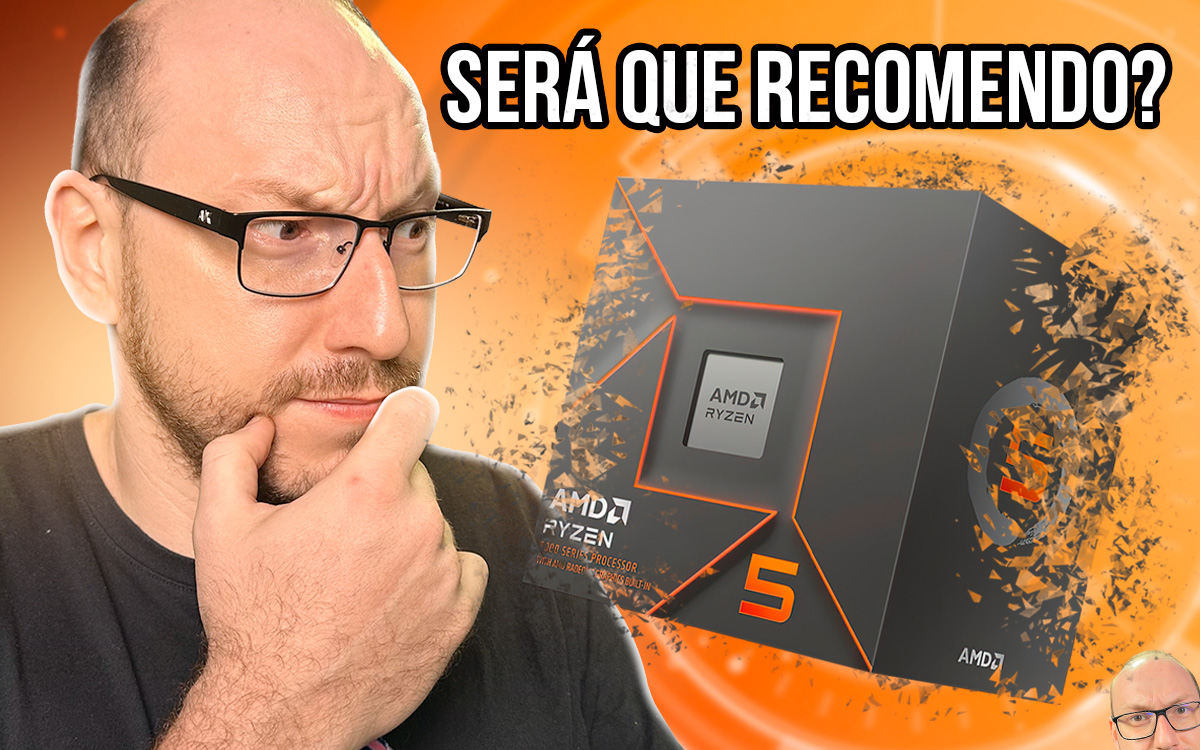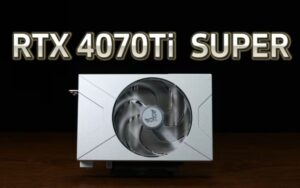
We’ve already talked about the complicated situation with the AMD Ryzen processor family. Despite being in the same generation or having similar nomenclature, the red side of the force eventually reduces some specifications too much in some models.
The AMD Ryzen 5 8500G fits well in this area. It still maintains the six cores and 12 threads like the Ryzen 5 8600G, it still has good RDNA 3 integrated graphics… but it has some big gotchas.
Pitfalls of the AMD Ryzen 5 8500G
The first problem with the Ryzen 5 8500G is that it doesn’t have all of its cores based on Zen4, like the 8600G. The 8500G has just two Zen4 cores combined with another type of core, Zen4c.
This Zen4c core was made to optimize space, so it has a much reduced area compared to the traditional Zen4:
This technology was introduced together with AMD Epyc processors, with the aim of enabling servers with higher core densities. But this reduction is not without consequences. The first is a reduction in the amount of L3 cache.

This doesn’t affect the 8500G as much compared to the 8600G because both only have 16MB of L3 cache. But the difference that affects the most is the clocks. Zen4c cores operate at slightly lower clocks. The Zen4 base on this processor is 4.1GHz with a boost to 5.0GHz, while the Zen4c cores operate at 3.2GHz with a boost of up to 3.7GHz, an important difference that is evident in performance tests focused on the CPU.
In the single-thread test this is not evident, after all the 8500G can use its faster Zen4 core. But it is necessary to force the use of all cores to see the performance drop caused by the 4 Zen4c cores.

CineBENCH
In CineBENCH the result is not so bad, after all it is still in the ballpark of a Core i5-12400F, but in other tests where the smaller amount of cache impacts more, we see it starting to fall between the Core i3-13100 and the Core i5 -12400. Detail: the Core i3-13100 has fewer cores and threads, but makes up for it with superior thread performance.

3DMark em CPU
Although not extraordinary, the processor performance still seems sufficient. And what does the integrated graphics look like? The AMD Radeon 740M drops the RDNA 3 computational unit count from 8 to just 4, compared to the Ryzen 5 8600G’s Radeon 760M. This has a significant impact on performance, but looking at tests with games, it doesn’t seem to be a problem:

3DMark em iGPU

Counter Strike 2 em iGPU

Call of Duty Modern Warfare III iGPU

Cyberpunk 2077 iGPU
The performance is cool, with several moments where this processor is better than the best product in the 5000G series, the Ryzen 7 5700G. In practice it also performed well, being quite possible to play Fortnite and Counter Strike 2, as we tested live.
Installing a video card
But perhaps the most critical is the reduction in PCIe lines. The Ryzen 5 8500G has PCIe 4.0 lines reduced from the 16 usable on the Ryzen 5 8600G to just 10. And of those, only x4 can be dedicated to graphics cards!
This creates a serious problem of limiting the bandwidth available for video card communication, and leaves a serious “bouncing” bottleneck to occur. This problem is partially alleviated if you use PCI Express 4.0 technology, which has twice the bandwidth per channel compared to PCIe 3.0, but is still in a risk area.
But better than theory is seeing it in practice. And the results… are not that alarming.

3DMark com RTX 4090

Assassin’s Creed Valhalla com RTX 4090

Baldur’s Gate 3 com RTX 4090

Call of Duty Modern Warfare III com RTX 4090

Counter Strike 2 com RTX 4090

Cyberpunk 2077 com RTX 4090

Red Dead Redemption 2 com RTX 4090
The low bandwidth does not have a much greater influence than we would expect from the fact that the processor is less powerful. Much of the time it surprises in the opposite direction, with performance almost equal to that of the Ryzen 5 8500G.
And when the system’s performance depreciates further, as in COD MW III, it is 20% behind the 8600G but is still tied with the Core i5-12400F and delivering an average of 190FPS. In other words, even when it’s bad, it’s not that bad!
What about stability? In live gameplay, we achieved some very interesting results. Warzone held above 120fps consistently, with good stability. Starfield ran close to 60fps even in the critical part of the game, where not all CPUs can maintain this frame rate.
Is it worth it or AMD Ryzen 5 8500G?
This is one of the products that makes us conflict. In theory, it has a disadvantage in terms of processor performance, which discourages its recommendation, but things come down to the great limitation of PCI Express channels available for a possible video card in the future.
This is all on paper, but in practice… we can’t feel a very noticeable impact on performance. In our gameplay, combined with a GeForce RTX 4060, the combination showed no signs of being excessively compromised by this bottleneck in communication between the graphics card and the rest of the system.
You definitely shouldn’t get a video card based on PCIe 3.0, but at least on an intermediate card and operating on PCIe 4.0, it seems like you can still do the combo.
But considering these limitations, does the AMD Ryzen 5 8500G make any sense? I think it all depends on one factor: the price. Today the scenario we have is the following:
| Average prices between 05/01 and 05/18 | |||||
| Intel Core | AMD Ryzen | ||||
| Core i5-11600KF | R$ 987 | Ryzen 7 5700X | R$ 1.057 | ||
| Core i3-14100 | R$ 933 | Ryzen 5 5600X | R$ 990 | ||
| Core i5-12400 | R$ 907 | Ryzen 5 8500G | R$ 901 | ||
| Core i3-13100 | R$ 888 | Ryzen 5 5600G | R$ 847 | ||
| Core i5-11400 | R$ 799 | ||||
| Core i5-12400F | R$ 778 | Ryzen 5 5600 | R$ 757 | ||
| Ryzen 5 5500 | R$ 576 | ||||
Looking at the price now, the Ryzen 5 8500G, even though it’s a launch, doesn’t do badly. It costs around 150 reais more than the Core i5-12400F and Ryzen 5 5600, but it has similar CPU performance and integrated graphics that already run a little something.
The Ryzen 5 8500G has theoretical bottlenecks that we cannot perceive in practice
Versus models with integrated graphics, it costs similar to the Ryzen 5 5600G but on the other hand it has much more iGPU performance. And although it doesn’t beat the 8600G, which is up to 30% faster in terms of integrated graphics in games, there is a good 300 reais separating the cost between these two models.
The doubt that this processor plants in our heads are the theoretical problems. The main one is the bandwidth of only 4 PCIe channels for the graphics card. If your video card is PCIe 3.0, forget it, better skip it. But if it is the PCIe 4.0 standard, like the RTX 4090 we used in tests, it becomes more difficult to see problems in practice. In the live event, we didn’t see any serious problems in combining this CPU with a GeForce RTX 4060.
With a cheap price, it can be a strong competitor for entry-level CPUs with good graphics
So we have problems on paper, but in practice we had difficulty realizing this actually becoming a problem. And this is where our recommendation for this product becomes complex. We know that it has potential deficiencies and bottlenecks that may arise, especially if you intend to add a graphics card later. But in our tests, this was never evident in either benchmarks or gameplay.
We still recommend investing a little moreand if you want integrated graphics, get a Ryzen 5 8600G, or if you’re going to have a video card, go for a Core i5-12400F or Ryzen 5 5600, which are even cheaper. But with the potential to appear even cheaper in the future, the Ryzen 5 8500G could become a difficult option to ignore.
Source: https://www.adrenaline.com.br/videos/nao-sei-se-deviamos-recomendar-esse-amd-ryzen-5-8500g/


